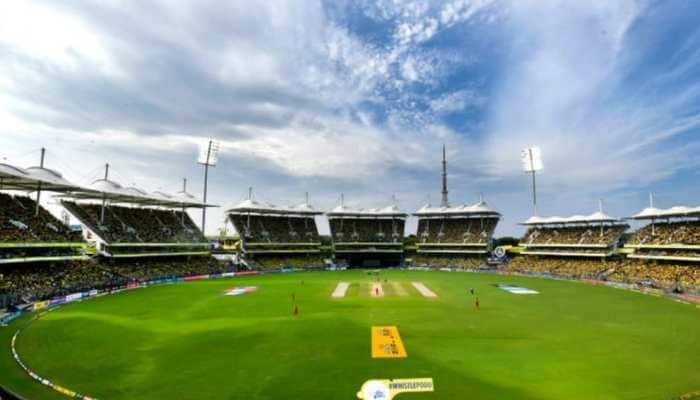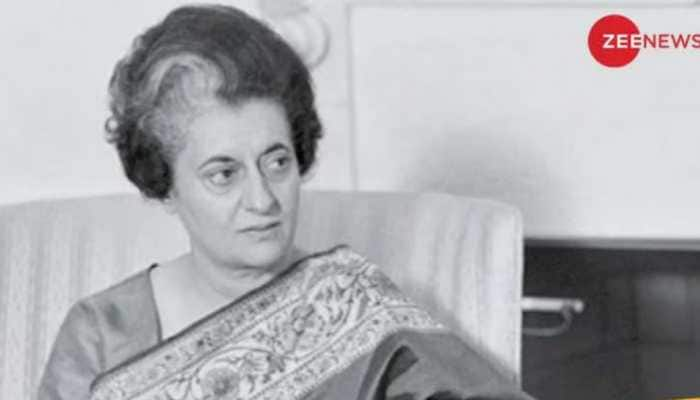Astro-turf is beneficial for Indian hockey: Balbir Singh sr
Dismissing the oft-cited problems in adjusting to asrto-turf as the reason for Indian hockey`s decline, the legendary Balbir Singh Sr. Said such an argument is merely an excuse to hide poor performance as the surface is beneficial for the country`s players.
Trending Photos
)
New Delhi: Dismissing the oft-cited problems in adjusting to asrto-turf as the reason for Indian hockey`s decline, the legendary Balbir Singh Sr. Said such an argument is merely an excuse to hide poor performance as the surface is beneficial for the country`s players.
Balbir said he does not share the widely-held belief that India and Pakistan lost ground in world hockey after initial domination due to the introduction of astroturf surfaces and change in rules. "I don`t believe that the change in rules and playing on astroturf has given a disadvantage to India and Pakistan. It is just an excuse (for the poor performance in recent years). Rather it should be beneficial to sub-continental hockey," Balbir told to a leading English news channel.
The 89-year-old said the changes have been effected for good of the game. "During our time, controlling the ball was a problem as we played on gravel fields. It was really difficult. Now the ground is smooth and the ball comes automatically. It`s perfect conditions for ball control," said Balbir who now divides his time between Vancouver, where his three sons are settled, and Chandigarh.
"Now the pace of the game is also fast because of less interruptions. The referee allows to continue play (under advantage rule) and so there is flow in the game. People want to see fast and continues play. So, it`s good for the game."
"It`s a fair game now. It`s good for Indian players and dribblers. The ball will come at the striking circle more often and if you have the talent you can dodge past two or three defenders and shoot at the goal. Dodging past opposition players inside the striking circle is the real dribble. Outside the striking circle anybody can do it and some do it for the gallery," he said.
Considered one of the finest ever centre-forwards the game has seen, Balbir rued the lack of field goals in contemporary hockey. "Nowadays, players would even try to hit the ball to the legs of opponents to get a penalty corner. Penalty corner has become an excuse to score goals. If you have the talent you should score field goals. Now most of the goals are scored indirectly."
Balbir said he preferred to score through first time strikes rather than long dribbles. "I preferred to score from first time strikes. The goalkeeper is not ready and you have a better chance to score. When you dribble before shooting, he gets time and it becomes more difficult." Balbir candidly admitted that he copied a lot of tricks from another legendary hockey player and his senior Dhyan Chand but with an ambition to better him.
"Dhyan Chand was my role model. He was a very good human being, nice and gentle and people respect him. I used to touch his feet. I learnt a lot from him about integrity, concentration and work ethic. "When I first played as goalkeeper he would be the centre forward of opposition team and I would think that I would one day become a player like him. I copy his tricks so that I can better him."
Balbir, who helped India win its first three Olympic gold medals while emerging as a newly independent nation, said he always considered his hockey stick and the tri-colour as the symbols of the country`s sovereignty. Balbir, who was a member of India`s gold-winning hockey team in 1948, 1952 and 1956 Olympics, said the thought of the tri-colour fluttering inspired him to go for the glory in the ultimate sporting arena.
"Thanks to the tri-colour. I played for the country, for the flag. When India won, the Indian flag would flutter and the National Anthem would be sung. That is something really special which will have to be experienced, not to be told or seen," Balbir said. "What I am today is because of the hockey stick and Indian flag. I had always considered them as the symbols of India`s sovereignty," 89-year-old Balbir, who still keeps a hockey stick by his bedside when he sleeps, said.
Balbir, who was one of 16 iconic Olympians chosen across different sports for their achievement in the Olympic history during the 2012 London Games, said his practice with a tennis ball in his early years at home helped him in developing quick reflexes and that was critical in goal-scoring.
Asked about the record five goals he scored in the 1952 Helsinki Olympic final against the Netherlands which India won 6-1, Balbir said, "At that time, the spirit and enthusiasm of the team was something different. Everybody was like, bring the ball at the striking circle (to score) and let`s see. It was amazing. "I used to practice with a tennis ball and I would hit it between the two doors of my house. The speed of the tennis ball, you know, it will come to you at a very fast speed and that helped me in developing my reflexes and I practiced a lot that I can even close my eyes and still put the ball between the two doors. That made me decisive and accurate inside the striking circle. That is how I scored five goals in that final match," Balbir said.
He said he would be happy if an Indian breaks his record of scoring five goals in an Olympic hockey final, which has been entered in the Guinness Book of World Records. "The impression of the people is that that record will never be broken. But if an Indian happens to break that record, I will be a happy man," said Balbir, who was also the manager and chief of Indian hockey team which won the World Cup in 1975. Asked about the stories of Dhyan Chand`s hockey stick being broken by people to see if there was a magnet inside it, Balbir said, "Those are made up stories. Similar things were also written about me. "There were also stories about Hitler offering Dhyan Chand to become an officer of captain`s rank in his army. But that was also a made up story. Hitler would have shot the person who was instrumental in his team`s defeat," said Balbir with a laugh.
He also recalled the interesting story of how he became a centre forward after starting as a goalkeeper. "My father was a hostel warden and Our house at Moga which we had on rent has a hockey ground just a few yards across the road and I watched the Indian team played matches there. When I started playing, I was a goalkeeper and then a full back and then a centre forward. "It was a local tournament and one of our cousins who used to stay with us came up and told me two senior full backs have come and I will play as a forward. I said forward and he said centre forward. Since then I played as a centre forward."
Stay informed on all the latest news, real-time breaking news updates, and follow all the important headlines in india news and world News on Zee News.
Advertisement
Live Tv
Advertisement







)
)
)
)
)
)
)
)
)
)
